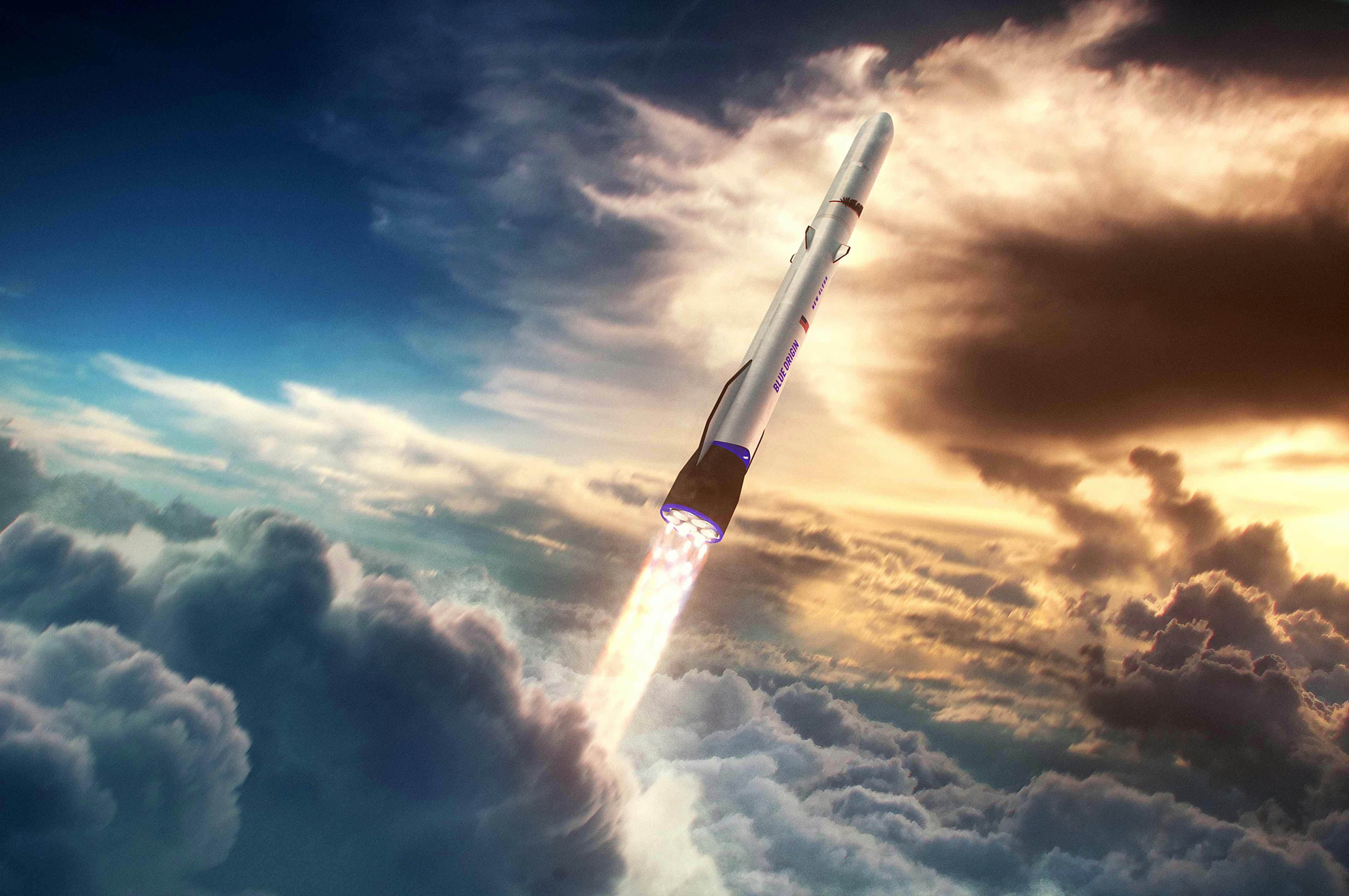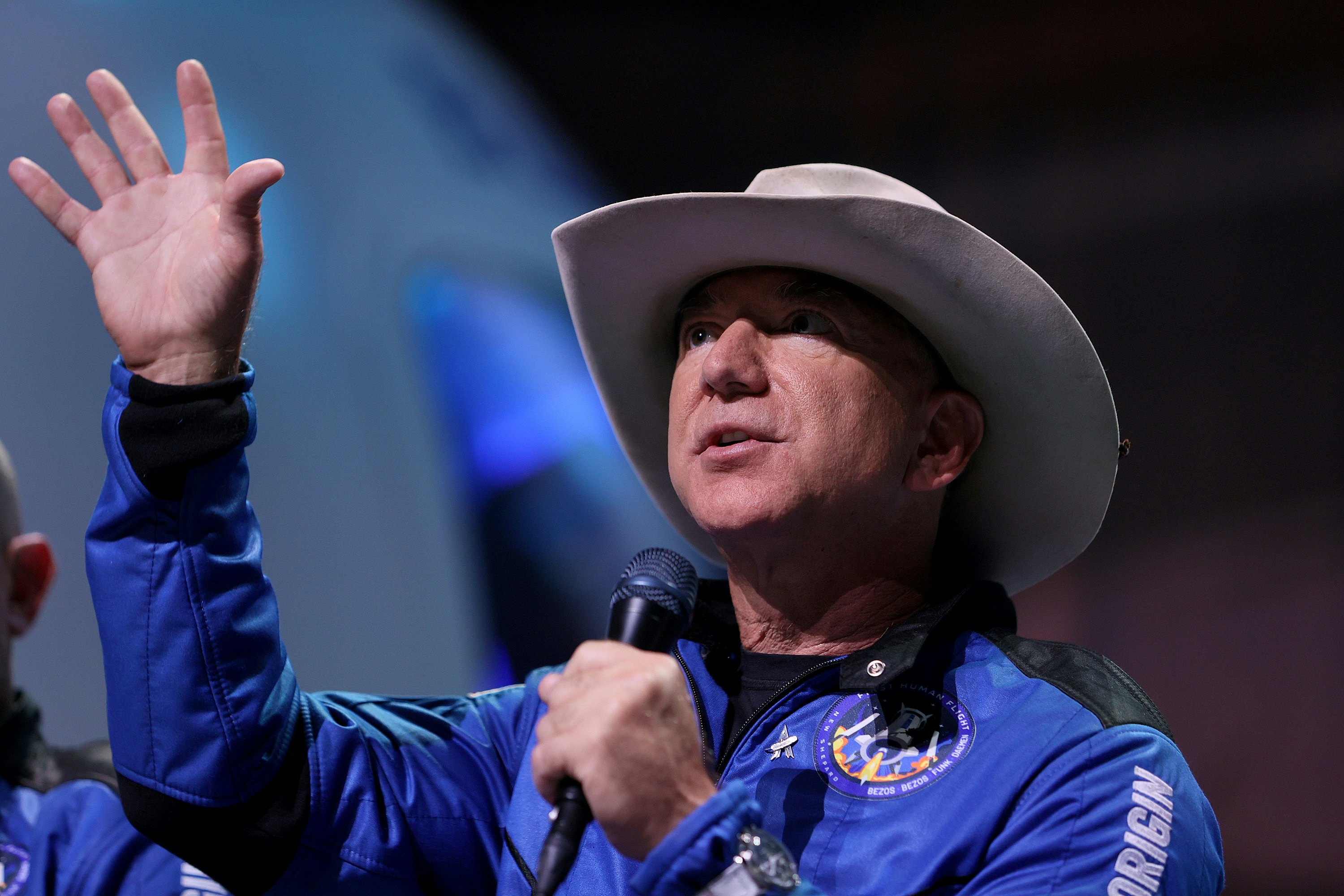
Blue Origin will remain a space tourism company for a while to come. On Tuesday, the company’s senior vice president of the upcoming New Glenn rocket, Jarrett Jones, confirmed that the rocket’s first launch would not take place this year. The comments, reported by CNBC reporter Michael Sheetz via Twitter, were made at the Satellite 2022 trade convention, held in Washington, D.C. from March 22 to 24.
The setback means that Blue Origin’s heavy-lift rocket will have to wait a bit longer before carrying its first payload to orbit. That means a less diversified spaceflight industry, the benefits of which became clear this week — British satellite developer OneWeb was able to switch launch provider earlier this week, amid the war in Ukraine, from Russian space agency Roscosmos to SpaceX following a dispute.
It also means that the Jeff Bezos-founded firm will have to stick with its existing New Shepard launches for 2022, the smaller rocket used to send a capsule of passengers on minutes-long, suborbital flights.
It’s the latest in a string of delays for the rocket, first unveiled in 2016 with the goal of sending crew and cargo much further into orbit. At its unveiling, the company claimed that it expected to launch before the end of the decade.
In February 2021, the launch was pushed back from late 2021 to the end of 2022. At the time, the company claimed the delay was due to missing out on key Pentagon launch contracts to the likes of SpaceX and United Launch Alliance. Later that year, Blue Origin started a legal battle over NASA’s decision to use SpaceX to provide a lander for its crewed lunar mission — a move that NASA’s administrator Bill Nelson suggested could have delayed the mission.
The latest comments around New Glenn suggest even that revised deadline isn’t going to happen. For now, Bezos and the team will have to stick with its suborbital flights that started in 2021. These smaller flights reach an altitude of just over 62 miles — a far cry from the International Space Station, which the likes of SpaceX and Roscosmos launch to on a regular basis, which orbits at an altitude of around 250 miles.
There was good news, however, for the New Glenn rocket’s planned BE-4 engine. That engine, developed by United Launch Alliance, is undergoing heavy testing at Blue Origin around three times per week.
United Launch Alliance CEO Tory Bruno declared that the company expects to take delivery of the first flight-ready engines in the middle of the year. He added that the engine is “running beautifully.”

What is New Glenn?
The New Glenn is a reusable rocket designed to lift 45 metric tons (99,208 pounds) to low-Earth orbit, destinations like the ISS. It can also lift 13 metric tons (28,660 pounds) to a much higher geostationary transfer orbit.
That means the rocket compares favorably to SpaceX’s Falcon family of rockets. The Falcon 9 can lift over 50,000 pounds to low-Earth orbit, while the triple-core Falcon Heavy variant can lift nearly 150,000 pounds to the same orbit.
New Glenn will lift off from Launch Complex 36 at Cape Canaveral in Florida. Following the launch, the booster is expected to land on a moving ship in a similar fashion to the Falcon 9. The first stage is designed to support up to 25 flights.
The booster, which packs seven BE-4 engines, generates nearly four million pounds of thrust at sea level.
Bezos will likely have his fingers crossed that New Glenn can launch soon — his long-term vision depends on a thriving space industry.
That vision, outlined in a 2019 speech, would see humanity build giant space stations, floating in Earth’s orbit, acting as artificial cities. This would enable humanity to eventually expand out to a population of one trillion.







